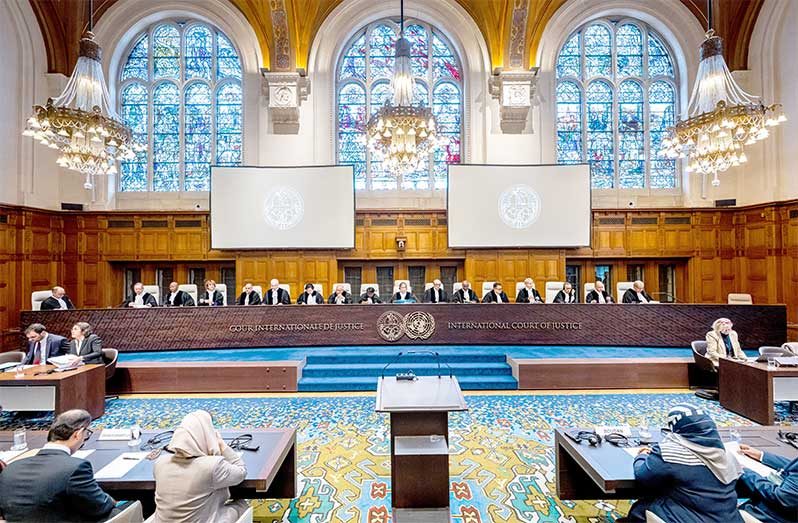—reinforces December 2023 order as border controversy case proceeds
THE International Court of Justice (ICJ) has ordered the Bolivarian Republic of Venezuela to refrain from holding or preparing for any elections in Guyana’s Essequibo region, pending a final ruling on the ongoing border controversy.
In response to the May 1, 2025 ruling, President Dr. Irfaan Ali stated in a Facebook post that Guyana’s stance has once again been upheld.
“Once again, Guyana’s position has prevailed. Once again, it has been demonstrated that Guyana’s position accords with international law. The Government of Guyana welcomes this decision,” the Head of State wrote.
The decision comes in response to a request by Guyana following Venezuela’s January 2025 announcement of plans to elect a governor and legislative council for what it claims to be the “Guayana Esequiba State.”
Venezuela is set to hold elections for the so-called Guayana Esequiba state during its upcoming regional polls on May 25, 2025—just one day before Guyana marks its 59th Independence anniversary.
In its ruling, the World Court reaffirmed the provisional measures granted on December 1, 2023, and introduced a new, binding directive.
The court in its December 1, 2023 order stated: “Pending a final decision in the case, the Bolivarian Republic of Venezuela shall refrain from taking any action which would modify the situation that currently prevails in the territory in dispute for which the Cooperative
Republic of Guyana administers and exercises control over that area; and both parties shall refrain from any action which might aggravate or extend the dispute before the court or make it more difficult to resolve.”
The new measure explicitly states that, pending a final decision, Venezuela “shall refrain from conducting elections, or preparing to conduct elections, in the territory in dispute, which the Co-operative Republic of Guyana currently administers and over which it exercises control.”
This latest directive was adopted by 12 votes to three by the judges of the ICJ in The Hague, The Netherlands.
The December 2023 order had already instructed Venezuela to avoid taking any actions that would alter the status quo, and called on both nations to refrain from aggravating the situation.
In welcoming the court’s decision, the Government of Guyana issued a statement through the Ministry of Foreign Affairs and International Cooperation.
It reaffirmed Guyana’s commitment to the rule of law and peaceful dispute resolution, stating that the ICJ’s process remains the legitimate mechanism for settling the longstanding controversy over the 1899 Arbitral Award, which established the boundary between the two nations.
“The Government of Guyana reiterates its unwavering commitment to the principles of international law, the peaceful resolution of disputes and to the ICJ process for a final, peaceful and lawful resolution of the controversy concerning the validity of the 1899 Arbitral Award that determined the land boundary between Guyana and Venezuela,” the statement read.
COMPLY
Guyana also urged Venezuela to comply fully with the Court’s orders, which are legally binding under international law.
The government has also called on Spanish-speaking nation to “refrain from any actions that violate Guyana’s territorial integrity or disrupt the peace and security of the Latin American and Caribbean region.”
The government emphasised that any attempt to violate Guyana’s territorial integrity or to destabilise peace in the region would be a serious breach of international laws.
The ICJ is currently considering the validity of the 1899 Arbitral Award, and its final ruling is expected to settle the matter definitively.
Guyana filed its Memorial in 2018, asking the United Nation’s highest court to confirm, in a final and binding judgment, the full legal validity of the October 3, 1899 Arbitral Award that established the international boundary between Guyana and Venezuela more than a century ago.
The international community has backed Guyana in its efforts to draw attention to Venezuela’s aggressive activities, which are wholly outside the bounds of the rule of law.



.jpg)








